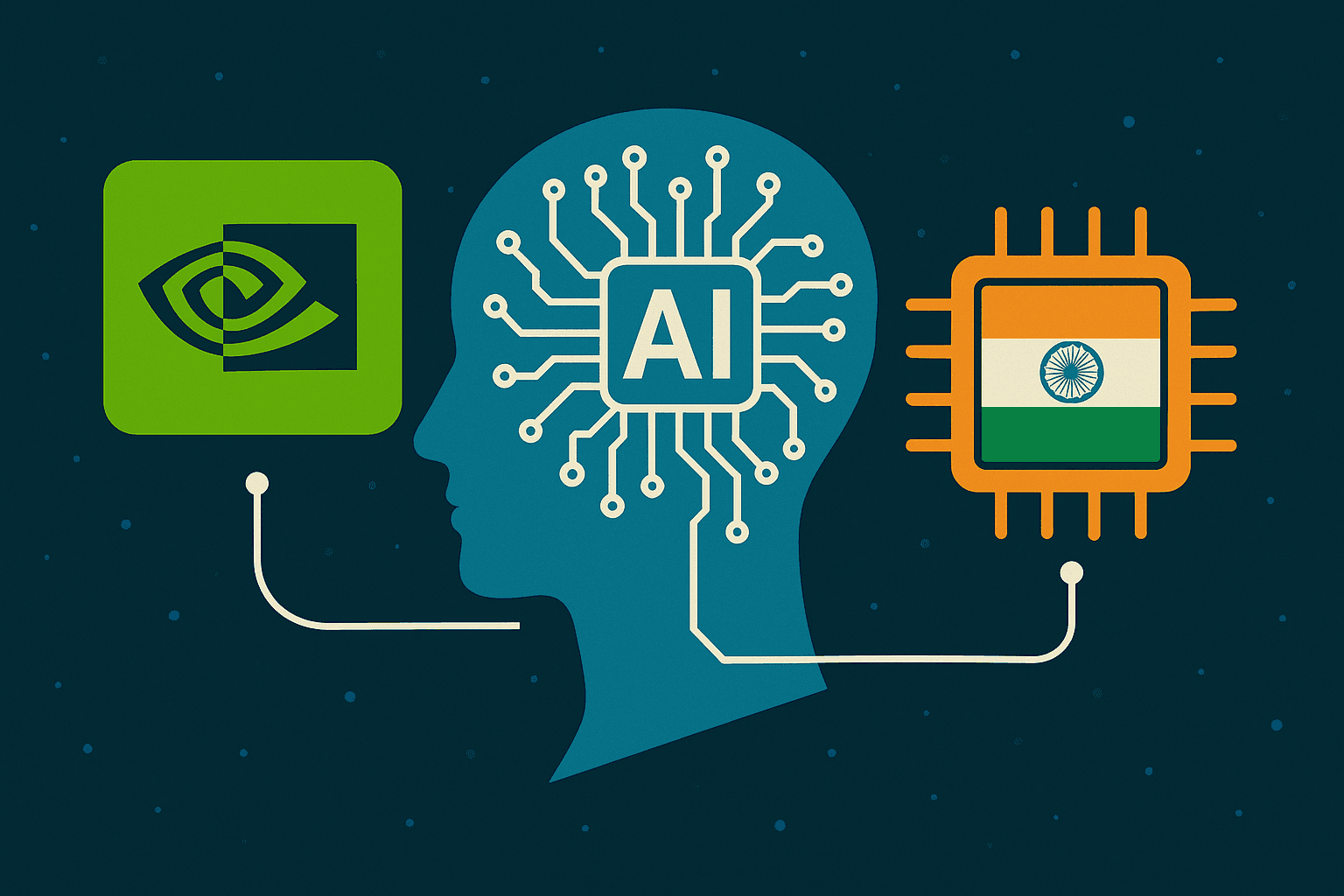Nvidia deepens India focus with $2 billion Deep Tech Alliance partnership

News Summary
Nvidia, as a founding member of the India Deep Tech Alliance (IDTA), has pledged $2 billion to support startups in areas such as artificial intelligence, biotechnology, and robotics. The company will provide training and mentorship through its Deep Learning Institute, aiming to accelerate India's startup ecosystem's AI-driven transformation. The Indian government has committed over $12 billion to AI and research initiatives, making deep technology a national priority to strengthen semiconductor capacity, energy research, and AI capabilities. Nvidia's involvement is expected to bridge knowledge and training gaps and support India's ambition to become a global center for technological self-reliance and intellectual property creation. This partnership comes amid growing global interest in India's AI market, with US rivals like Google also scaling up investments. For Nvidia, collaborating with Indian institutions and investors could secure long-term advantages in both talent and technology adoption, especially given India's rapid growth in data centers and AI applications.
Background
Currently, India is aggressively pursuing technological self-reliance and innovation, particularly in AI, semiconductors, and deep technology. The Indian government has made substantial financial commitments to these sectors, including an $1.1 billion AI Mission and an $11.2 billion Research, Development, and Innovation Scheme Fund. Nvidia is a global leader in AI chips and systems, crucial for AI development. Globally, with ongoing US-China tech tensions and the Trump administration's "America First" policies, global tech giants are looking to diversify their operations and talent pools. India is increasingly emerging as a key alternative destination due to its large skilled workforce and government support.
In-Depth AI Insights
What broader geopolitical and economic shifts does Nvidia's intensified India focus signify for the US tech industry in the context of global supply chain restructuring? Nvidia's investment in India is not merely commercial expansion but a reflection of US tech giants' strategy to "de-risk" and "friend-shore" global supply chains. As US-China tech tensions persist, and with the Trump administration pushing for supply chain diversification, India presents an ideal alternative to China, boasting a vast English-speaking technical talent pool and a stable democratic environment. This indicates that critical US tech companies are actively building non-China-centric global ecosystems to mitigate geopolitical risks and gain an early foothold in emerging markets. What are the Indian government's core strategic objectives in this partnership, and how might this impact its position in the global technology landscape? The Indian government's core strategy is to achieve technological sovereignty and enhance national innovation capabilities. By attracting global leaders like Nvidia, India gains access to advanced technology and talent development, accelerating its domestic semiconductor and AI industries and reducing reliance on foreign tech. As the host of the upcoming AI Impact Summit, India is actively shaping global AI governance and standards. Its growing technological prowess and international collaborations will significantly boost its influence in the global tech landscape, positioning it as a crucial tech partner for Western nations in Asia, particularly in counterbalancing China's technological sway. For Nvidia, what are the short-term and long-term return on investment expectations from this $2 billion alliance participation and its undisclosed financial commitments? In the short term, Nvidia's direct financial commitment might be modest, with its technology and brand influence being the primary contributions. This move aims to establish early market share, secure future talent and customers, and build strong relationships with Indian policymakers. Long-term, Nvidia is poised to dominate India's explosively growing AI market, especially in data centers and AI applications. Through deep collaboration, Nvidia can ensure its GPU technology remains central to India's AI infrastructure, leading to massive future revenue potential. It may also benefit strategically and financially from equity investments or licensing agreements with startups incubated within the alliance.